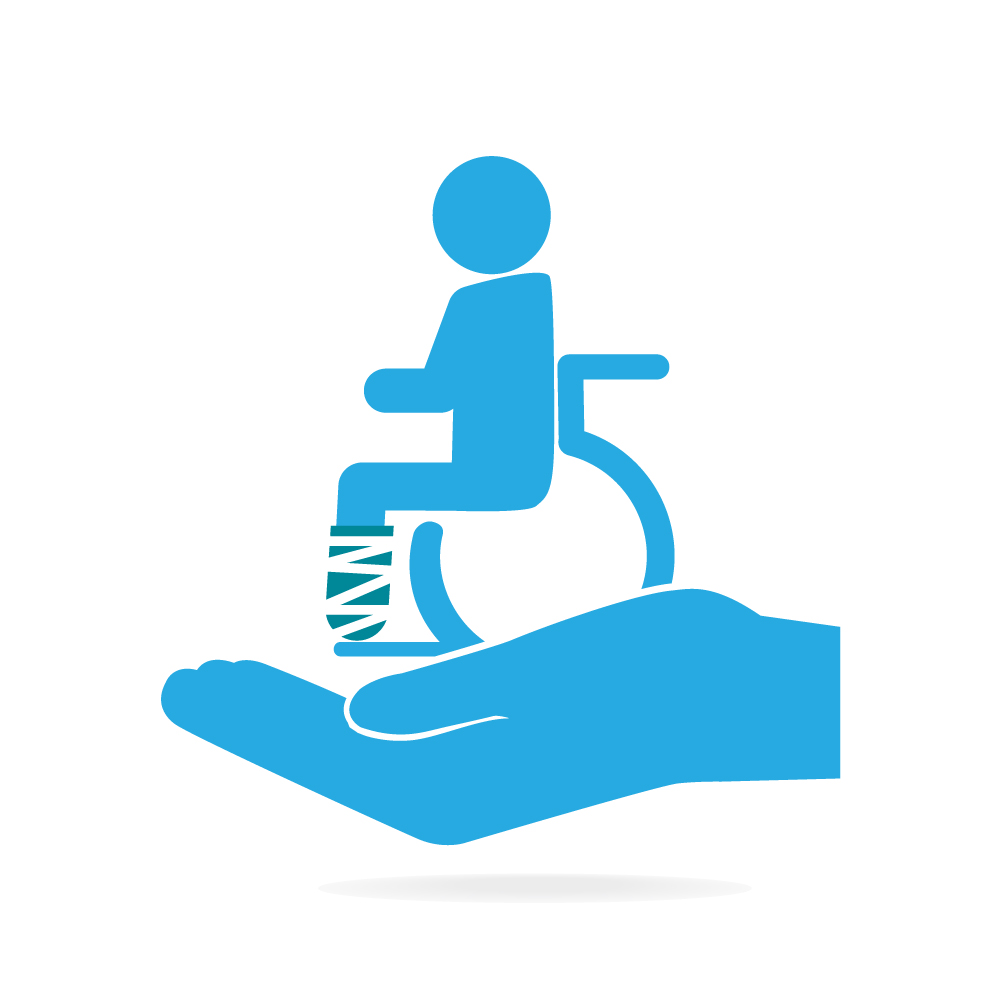General Insurance Blogs, Articles & Updates by - Magma HDI
Have us call you
- RENEW YOUR POLICY
- BUY NEW POLICY

5 myths of Home Insurance
Home insurance is one of the most common insurance that people buy, but most of the buyers do not know about the complete limitations and benefits of such insurance policies. There are certain myths related to home insurance policies that are still prevailing in people’s minds. You can find a person buying the best home insurance in India, but he/she will be under the myth that the insurance policy does not cover this or that. People need to properly read the offer and scheme related documents before they are deciding on buying any particular policy. Some of the myths that have been there in people’s minds for long periods have been debunked here: -
1 If the damage to the home is severe enough that it is beyond repair and you cannot live in it while it is being repaired or renovated, the insurance company will put you up in a hotel or a serviced apartment temporarily while the work is being done. This is true for some insurance plans but not all insurance plans and if loss-of-use is there, it will be clearly stated in the policy. People should not be under the myth that Loss-of-use is present in all policies else they will have to bear a huge financial burden of paying the hotel fees as well.
2.Many people believe that their belongings lost in the fire will be replaced with new ones if they have a policy. However, most of the policies do not have this clause. Instead, the losses are calculated by what the items were worth before they were lost in the fire. A four-year-old computer that you bought for Rs. 50,000 may be worth only Rs. 13,000 before the calamity and the insurance company will calculate the loss by counting the price of the computer as Rs. 13,000 and not the original price of Rs. 50,000.
3.Even the plan which may be the best home insurance in India may omit coverage against flood. Floods can occur due to several reasons, such as a storm, hurricane, ruptured pipes or drainage stoppages, or ruptured sewer backup but most of the times flood is not included in the policy. If you live in a flood-prone area, there are special flood policy packages offered by selected firms but in general, it is not included in a home insurance policy.
4.People generally believe that low premium means low insurance coverage, but this is not true. You can lower your premium in many ways without reducing your coverage if you take safety precautions of your own to protect your house. If you have security devices such as fire alarms or burglar alarms installed at your house, you can tell that to the insurance provider, and your premium can be lowered.
After the fire tragedy, some items are destroyed or damaged to such an extent that for the insurer, it could be challenging to identify for assigning the claim. So, as a responsible party, you ought to click as many pictures and shoot videos as possible of the damaged, smoked rooms to show the physical evidence of the actual damage before it gets wiped by a restoration company.
5.This is a myth that you need to be a homeowner to buy home insurance. You can very well buy home insurance for your belongings and contents of the house without being a homeowner. A tenant can purchase home insurance for his belongings and in case the tenant shifts; the policy can be approved for a change of address as well. Not only this, but the homeowner can also get home insurance for the structure of the rented accommodation or the house in which there are tenants living.
While buying even the best home insurance in India, you need to be careful and read all the documents for the policy carefully to understand what all things are included in the insurance and what all things are not included in the insurance. Different policies are accommodating different perils and you must choose the one that fits your requirements the best.

Home Buyer's Guide
Owning a home is generally seen as a sign of adulthood and financial responsibility. Buying a home is a huge step and a very big commitment and requires a lot of work on your part. You need to be aware of all the different things and steps involved with everything to fully comprehend what all things need to be taken care of before you buy a home such as EMI payments, property tax payments,best home insurance policies in India and several others. Many people rush into buying homes which is never a good idea because if you are not careful while buying a home, there is a probability that you may be making a bad investment.
When buying a home, you need to be sure that you can sustain the financial burden and it won’t mess up your financial stability and for that, you need to understand the various aspects of homeownership. You can consider this as a guide which will help you in making a correct decision that will be beneficial for you in the long run as a good investment. Going step-by-step, you need to ponder over carefully on all these things: -
- The need to buy the property - Many people decide to buy a home just because they want to prove to the world that they have attained adulthood and they can own a home. The decision to buy a home should not be made so precariously and proper thought must be given to whether you need to buy a property and how will it affect your financial stability in terms of mortgages.
- Shortlisting the Property - Once you have properly assessed your requirements for a property, you need to now ponder upon what kind of home would you like to live in. Shortlisting can also be done based on whether you want to move in immediately or you want to construct the house according to your preferences. Ready to move in property generally require enough finances for paying cash up-front to buy them but for a house under construction, you can take bank loans while paying less cash up-front. The property should also be shortlisted based on what kind of location you want to live in.
- Understand the tax implications - Everyone wants to reduce their taxes, and for this, you need to understand what kinds of taxes you have to pay and how can that tax be reduced smartly. You can save capital gain tax on residential properties but not on commercial properties.
- The Legal Perspective - Once you have decided on buying a property, take care of all the legal things that need to be done so that the property is registered under your name or someone in your family. All the documents should be clear, and you should be comprehensive with regards to all the paperwork for the property to avoid any issues in the future.
- Manage Finances - You need to have a stable financial system so that you do not face any difficulty in your daily life after deciding to buy a new property. You can also avail home loans from banks to finance the new property by paying less cash upfront to the developer of the property. Your home loan eligibility and the amount for which your home loan is sanctioned depends on your ability to repay the loan, i.e. indirectly your salary..
Home buying is generally categorized into three different stages which are the Pre-purchase stage, financial handling stage and the Post-purchase stage. You need to be properly involved in all of these stages and understand each and everything so that you do not face any legal problems in future.
Make sure that all documents are complete and if you rent out your property, have proper rent agreement papers made. Buying a home also means you need to have home insurance, and you can buy some of the best home insurance policies in India from different insurance providers at attractive premium rates. Compare the policies properly and buy the one that suits your requirements the best.

Is Personal Accident Insurance essential in India?
While driving on the Indian roads, the possibility of an accident can never be ruled out. Whether due to a momentary lapse on your part or due to oversight on the part of someone else, accidents can take place anytime and anywhere. But the damages/losses incurred due to it can be mitigated with the help of personal accident insurance in India.
What is Personal Accident Insurance
Personal accident insurance is offered in combination with Third-party policy. Insurance companies charge a nominal fee for offering this coverage. Under this policy, you will be reimbursed by the insurance company for injuries suffered while driving your vehicle.
Is it mandatory to get personal accident insurance in India?
As per the latest insurance regulations introduced by the government, it is mandatory to get personal accident insurance in India for a vehicle owner. The current regulations by IRDAI state that the car owners, as well as bike owners, will now get a mandatory personal accident cover of Rs. 15 Lacs as per their motor insurance policies. Previously, this cover was capped at Rs. 2 Lacs for car owners and Rs. 1 Lac for two-wheeler owners against a premium of Rs. 100 and Rs. 50 respectively.
Now the premium has been increased to Rs. 750 for a cover of Rs 15 Lacs. This premium is payable over and above the mandatory third party insurance cover. If the insured person wants a higher cover, then the same can be availed by paying a higher premium, which is to be decided by the insurance company. The coverage of the policy extends to the owners of the vehicle as well as the drivers of the vehicle, provided the availability of a valid driving license.
This improvement in the personal accident insurance in India was introduced after a judgement by the Madras High Court in the year 2017. While passing the judgement, the court noted that enhancing the personal accident cover will act as some kind of solace to the victim as well as survivors of the accident.
Though there are some exceptions applicable wherein the owner can opt-out of this mandatory personal accident cover i.e.
- If the vehicle owner already has a valid personal accident cover policy with a sum insured of more than Rs. 15 Lacs.
- If the owner already has a motor insurance policy with a compulsory personal accident cover with a sum insured of more than Rs. 15 Lacs for another vehicle owned by him/her.
- If the vehicle owner already has a separate compulsory personal accident policy.
Benefits of Personal Accident Insurance
Some of the standout benefits of subscribing to personal accident insurance in India have been listed here: -
- The policy covers in the case of the unfortunate death of the insured. The nominee is entitled to the entire sum.
- The cover is even provided for total permanent disability, permanent total disability, permanent partial disability and temporary total disablement.
- Some policies even cover hospitalization due to an accident and the cost of transportation for mortal remains in case of death.
- The dismemberment of any kind is also covered in some policies. Certain companies have also given said ratio and benefits for certain kinds of injuries that will then be paid to the policyholders
- Very few companies also provide optional coverage in case of burns. This can also be considered before personal accident insurance is taken into action.
- The treatment for the burns is also covered by some insurance companies.
With such extensive benefits on offer, availing personal accident insurance in India is a necessity for the vehicle owners.

Climate change is affecting not just the planet, but your home insurance as well
Climate change is the shift in the temperature and weather patterns over a long period. It affects the entire planet by causing abnormally cold conditions in some parts of the earth, while some areas witness extreme heatwave conditions. Some regions are experiencing long dry spells, while others are experiencing devastating floods.
Human activities are primarily responsible for the rapid climate change across the planet. Excessive burning of fossil fuels like oil and gas and irresponsible exploitation of natural resources result in climate change. If you wish to buy home insurance online India to deal with damages due to untimely incidents, here’s how this may directly impact you.
1. Increase in premium:
Some regions of the planet are witnessing a higher impact of climate change and increased natural disasters such as floods, wildfires, deep freeze, rise in sea level, etc., than others. Home insurance premiums have shot up at an alarming rate in such regions. It is becoming very costly for homeowners to buy home insurance online India policy in such areas.
This is logical as the risk of insuring houses in these places and the number of claims is rising. Hence, it is becoming financially unsustainable for insurers to provide insurance services at the prevailing rates. Home insurance premiums have increased by around 10%-12% on an annual basis. This rate varies and is even higher for houses in heavy disaster-prone areas.
2. Rise in the number of inhabitants:
Disaster-prone areas offer inexpensive land, which increases their demand. This results in the increasing population and limited availability of land in disaster-prone areas. However, houses in areas prone to flooding or nearby forests always have a higher risk.
Houses near a forest always pose a higher chance of starting a wildfire by accident. More house inhabitants mean more damage during severe flooding or other natural disasters. These factors influence home insurance policies, their terms and conditions, and premium in areas vulnerable to natural disasters.
3. Difficulty in getting home insurance:
Residents in regions that are witnessing disasters due to climate change are finding it difficult to get their homes insured easily. The probability of damage to their houses is very high because of the topography of their area. For example, rising sea levels due to climate change threaten the existence of dwellings close to the sea shores. Several cities in the world face the risk of extinction by submerging in seawater due to rising sea levels.
Insurers are not interested in insuring houses in such high-risk areas. This makes it difficult for people to get their homes insured, even after shelling out high premiums, which are often unaffordable for the middle & low-income strata. This increases the risk of complete financial ruin in the event of a natural disaster.
Abrupt climate change is catastrophic. It can cause extreme heat or cold conditions, floods and droughts, hurricanes, and tornadoes. Moreover, it can also result in biodiversity loss. Although climate change is inevitable, we can control the pace with which it changes. With the risk of abrupt climate change looming on our heads, the wisest decision in these times is to buy home insurance online India. Opt for comprehensive coverage against damages to the home structure and contents, loss due to short circuits, fire, floods, etc.
Click HERE to buy home insurance online India.
Disclaimer: The information provided above is for illustrative purposes only. To get more details, please refer to policy wordings and prospectus before purchasing a policy.


